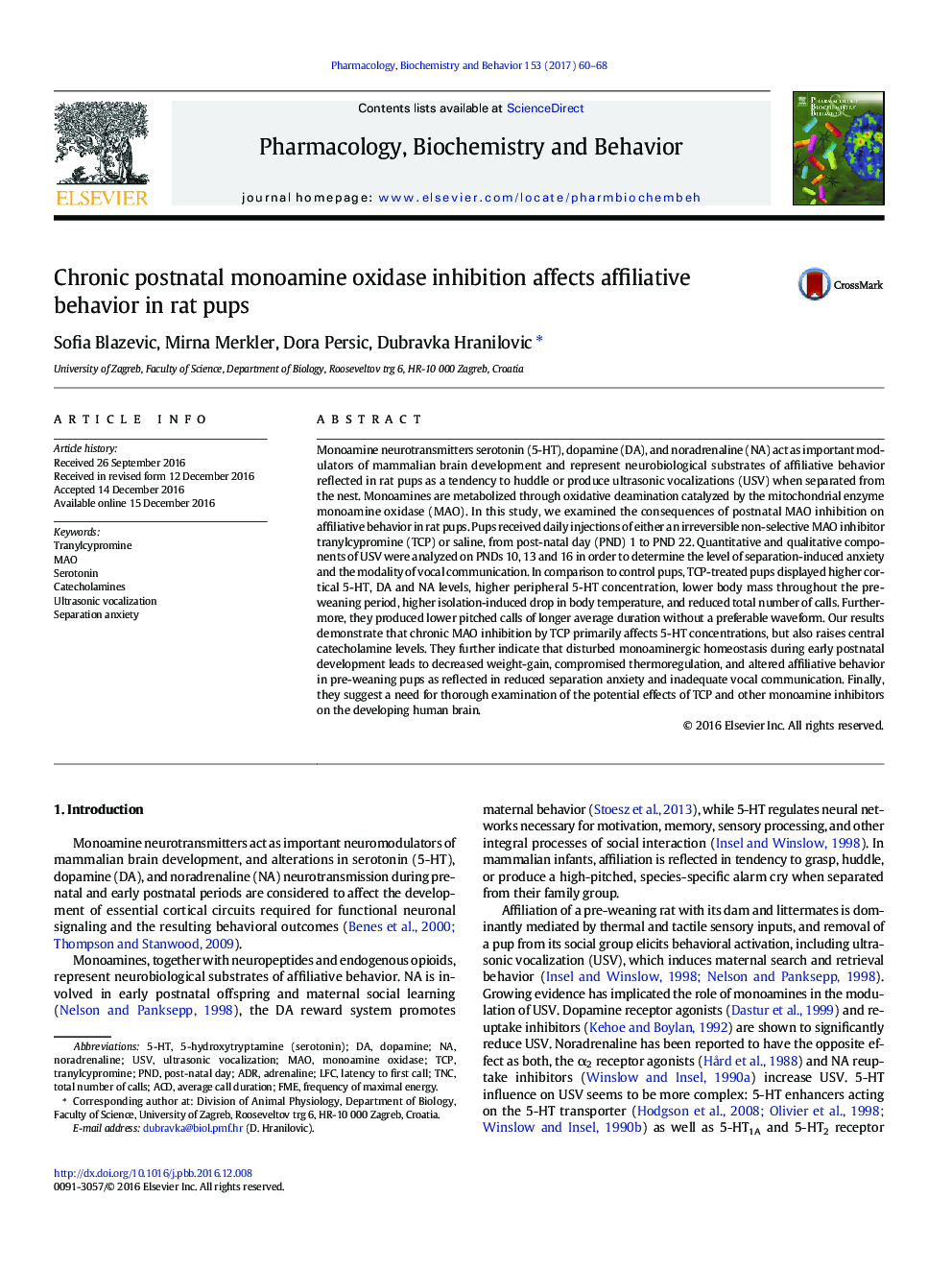| کد مقاله | کد نشریه | سال انتشار | مقاله انگلیسی | نسخه تمام متن |
|---|---|---|---|---|
| 5515218 | 1541834 | 2017 | 9 صفحه PDF | دانلود رایگان |
- Chronic postnatal MAO inhibition with tranylcypromine raised cortical monoamine levels.
- Rat pups displayed stronger disturbance in 5-HT than in catecholamine homeostasis.
- Weight-gain, thermoregulation and affiliative behavior were diminished.
- Lower number of ultrasonic calls indicate reduced separation anxiety.
- Longer, lower pitched calls of variable waveforms suggest impaired acoustic communication.
Monoamine neurotransmitters serotonin (5-HT), dopamine (DA), and noradrenaline (NA) act as important modulators of mammalian brain development and represent neurobiological substrates of affiliative behavior reflected in rat pups as a tendency to huddle or produce ultrasonic vocalizations (USV) when separated from the nest. Monoamines are metabolized through oxidative deamination catalyzed by the mitochondrial enzyme monoamine oxidase (MAO). In this study, we examined the consequences of postnatal MAO inhibition on affiliative behavior in rat pups. Pups received daily injections of either an irreversible non-selective MAO inhibitor tranylcypromine (TCP) or saline, from post-natal day (PND) 1 to PND 22. Quantitative and qualitative components of USV were analyzed on PNDs 10, 13 and 16 in order to determine the level of separation-induced anxiety and the modality of vocal communication. In comparison to control pups, TCP-treated pups displayed higher cortical 5-HT, DA and NA levels, higher peripheral 5-HT concentration, lower body mass throughout the pre-weaning period, higher isolation-induced drop in body temperature, and reduced total number of calls. Furthermore, they produced lower pitched calls of longer average duration without a preferable waveform. Our results demonstrate that chronic MAO inhibition by TCP primarily affects 5-HT concentrations, but also raises central catecholamine levels. They further indicate that disturbed monoaminergic homeostasis during early postnatal development leads to decreased weight-gain, compromised thermoregulation, and altered affiliative behavior in pre-weaning pups as reflected in reduced separation anxiety and inadequate vocal communication. Finally, they suggest a need for thorough examination of the potential effects of TCP and other monoamine inhibitors on the developing human brain.
Journal: Pharmacology Biochemistry and Behavior - Volume 153, February 2017, Pages 60-68
